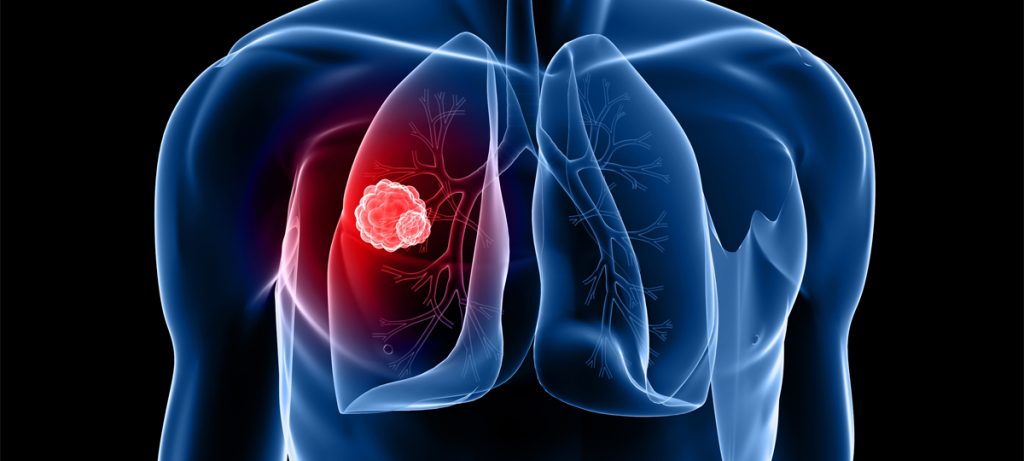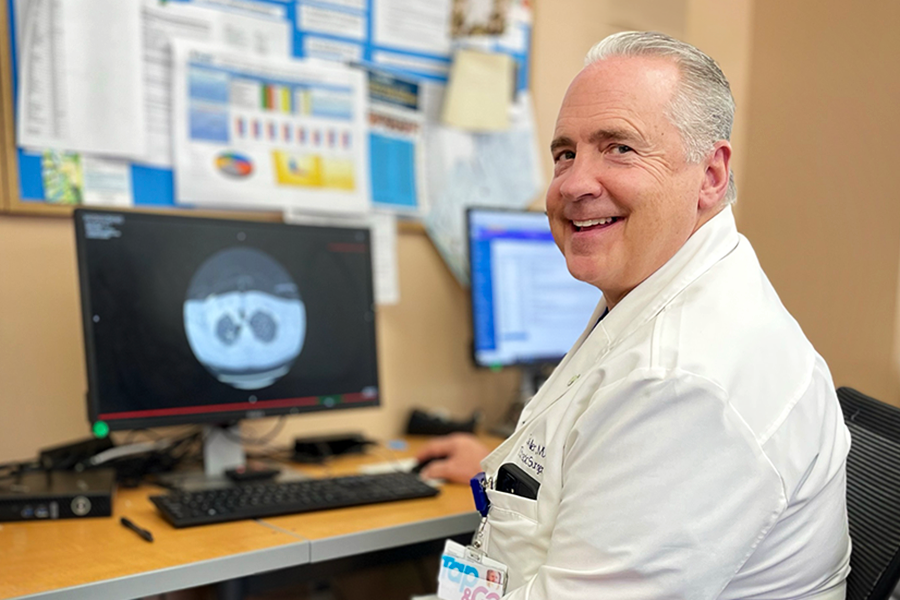Artificial intelligence is helping oncologists at the Georgia Cancer Center streamline diagnosis and treatment for lung cancer patients, an especially important development for those living in rural areas within a 75- to 100-mile radius of the facility.
The Central Savannah River Area frequently sees patients presenting with various lung conditions, including granulomatous lung disease, pulmonary sarcoidosis and post-COVID lung scarring. Determining the cause of incidentally found lung nodules is crucial for managing the care of these patients.
Accurate identification and characterization of incidentally detected lung nodules are crucial for early-stage lung cancer diagnosis and potential cure. While following published clinical guidelines, the risk of malignancy generated by Optellum Lung Cancer Prediction score is a critical input into clinical decision-making. LCP scores range from 1 (0.2%) to 10 (93%) for risk of cancer.
“The decision to implement the Optellum Virtual Nodule Clinic into the practice has enhanced our ability to address these diverse health challenges and ensure that patients in our region receive timely and comprehensive care,” said Dan Miller, MD, the Floyd Jarrell, Jr. Distinguished Chair of Surgical Oncology in AU’s Medical College of Georgia and director of the Lung Screening Program at the GCC. “Previously, our team would have a patient with a 7mm lung nodule where the decision would be to follow a watch-and-wait approach. However, with this new artificial intelligence technology, instead of waiting three months for new imaging, we move forward sooner with the diagnosis and treatment, eliminating any delay.”

“Optellum’s precision-care solutions transform patient management by providing AI-enabled insights. The result? A change in earlier lung cancer diagnosis and optimal treatment,” said Johnathan Watkins, PhD, CEO of Optellum. “Optellum elevates patient outcomes and the clinical workflow by integrating AI-driven insights, for earlier lung cancer diagnosis. Via our Patient Discovery and FDA-cleared Lung Cancer Prediction AI tool, health care providers can optimize diagnostic and treatment strategies for improved patient outcomes.”
At GCC, members of the Lung Cancer Care team found that the LCP scores closely correlated to a diagnosis of malignancy while nodule size alone did not. LCP scores of eight and higher are particularly predictive of malignancy. Decisions regarding whether to proceed with a biopsy or surgery rely on a comprehensive assessment and discussion with the patient.
“Access remains a major concern, and we’re actively enhancing access to underserved regions within our community. Streamlining and expediting care is crucial,” said Miller. “By implementing Optellum and expanding our multidisciplinary thoracic-oncology NOW Clinic, we’re creating an efficient clinical pathway for patients with decreased travel, visits and cost. We’re tackling a significant health issue in Georgia, particularly related to our population’s well-being and health outcomes.”
The use of AI is particularly valuable in more quickly identifying patients, many of whom are asymptomatic, and accelerating their time to diagnosis, care and cure. The LCP risk of malignancy score moves the right patients forward to robotic bronchoscopy or surgical biopsy.
While accelerated early diagnosis and treatment for high-scoring and malignant nodules is key, the use of AI software has also helped to ensure unnecessary biopsies or procedures are being done and only the correct procedure is executed for each patient.
 Augusta University
Augusta University




